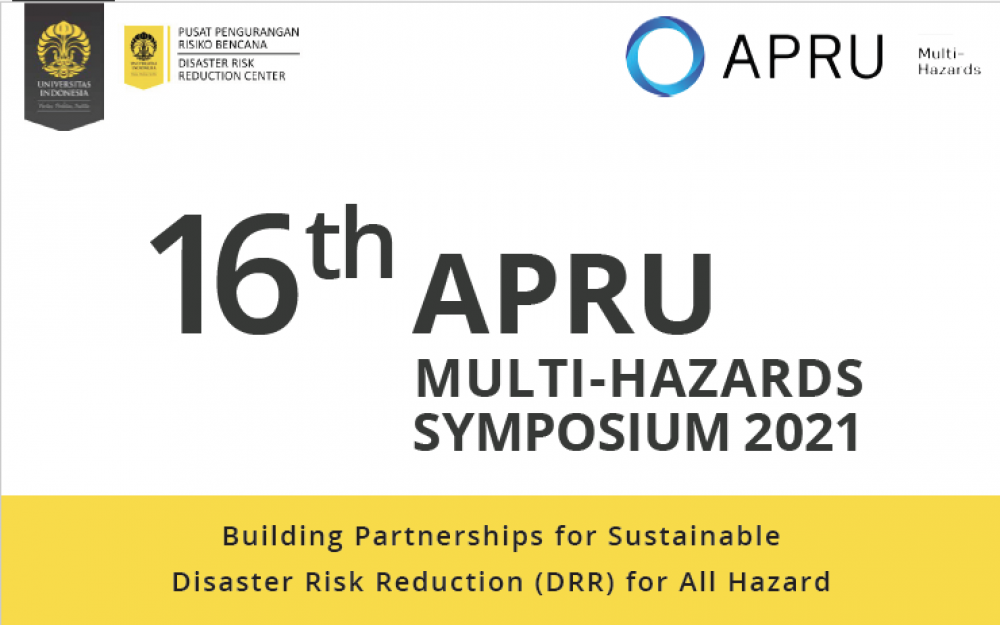The APRU Multi-Hazards Symposium 2021 was held virtually November 24-25, hosted by the Disaster Risk Reduction Center of Universitas Indonesia (UI). The event, which took two years of preparation due to the pandemic, offered oral and poster presentations for researchers and students to exchange study outcomes.
Southeast Asia, one of the world’s regions most at risks of natural disasters, has been striving to develop its resilience to disasters. The APRU Multi-Hazards Symposium 2021’s theme Building Partnerships for Sustainable Disaster Risk Reduction (DRR) for All Hazards highlighted the importance of an all-hazards approach, while underlining the focus on strengthening resilience and preparedness for future disaster management. This covers natural and biological hazards, such as the world is experiencing right now with COVID-19.
“This event was the result of collaboration between multiple national and international parties that took extra care to ensure it goes smoothly and provided valuable experience for everyone involved,” said Symposium Chairperson Prof. dra. Fatma Lestari.
“Within the call for abstracts, we have received and reviewed more than 350 abstracts and full papers from across the globe, and we were also able to collaborate with various national and international journals in helping scholars with their scientific publications,” she added.
The multidisciplinary nature of the APRU Multi-Hazards Symposium 2021 was attested to by the subsidiary themes of crisis management, innovative infrastructure, and sustainability.
Over 1,000 participants attended, with featured speakers including representatives from five APRU member universities, Indonesian government officials, as well as representatives from the Association of Southeast Asian Nations (ASEAN), The United Nations Educational, Scientific and Cultural Organization (UNESCO), United Nations Interregional Crime and Justice Research Institute (UNICRI), United Nations University, and the Institute for the Advanced Study of Sustainability (UNU-IAS).
Nearly 250 participants provided presentations. Prize awards were given to presenters from Indonesia, the Philippines, Japan, Singapore, and the USA.
The APRU Multi-Hazards Symposium 2022 will be hosted by Chulalongkorn University under the theme Innovation Towards Sustainable Growth and Disaster Risk Reduction.
Find out more about the Multi-Hazards Symposium 2021 here.

